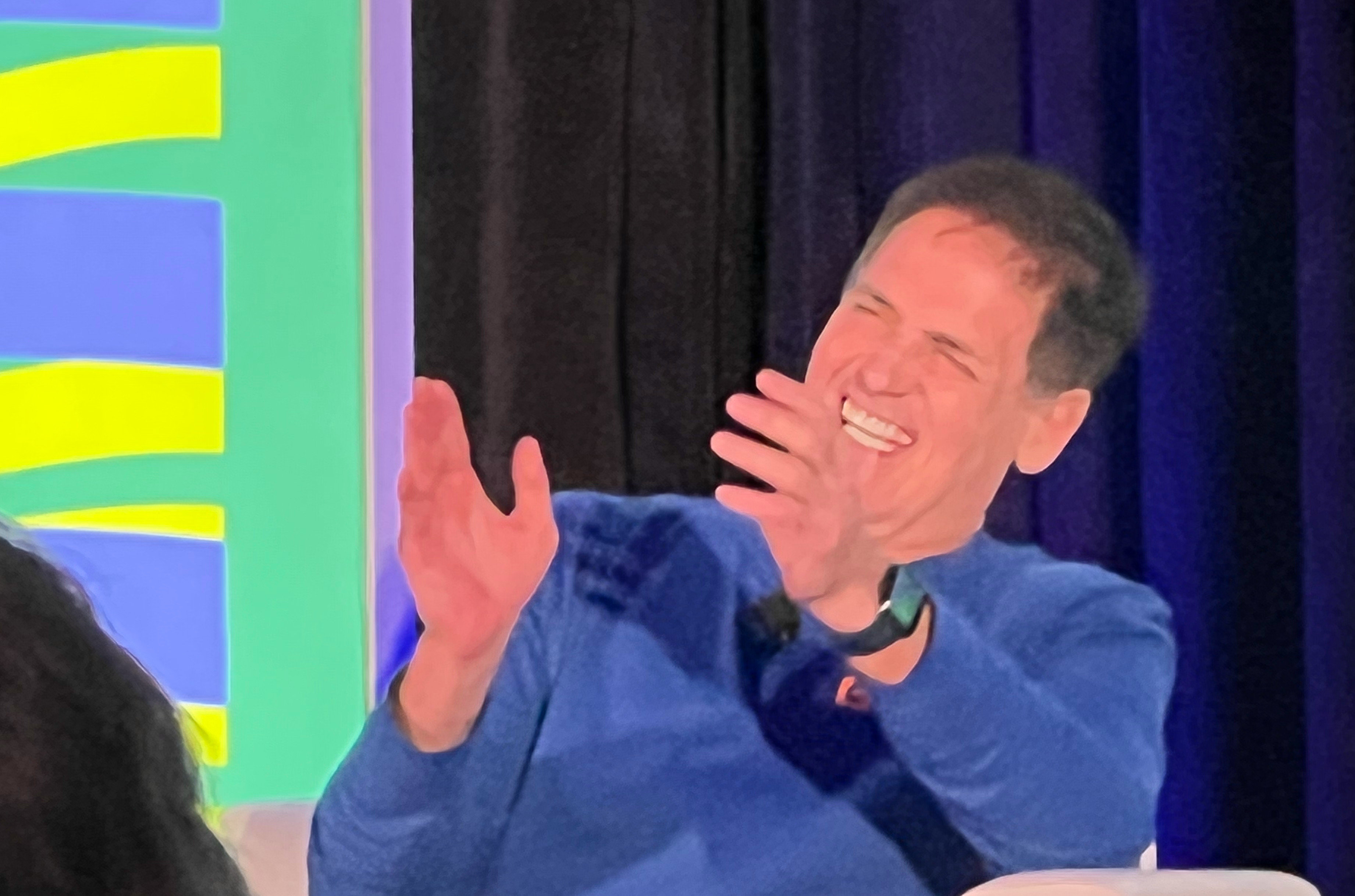How can you can make online presentations more interactive? That is the question Mark Cuban and Falon Fatemi have set themselves to address with their new company Fireside.
Cuban, one of the most high-profile billionaires in the United States, made an appearance at SXSW to discuss the future of entertainment. In a nutshell, Cuban explained that “One, having full production capability, Two, participation, and Three, control over your audience: that’s what creators need to be fully creative and create new forms of entertainment. Finding new ways to connect is critically important and that’s what we’re hoping to do. That is one of the reasons we are up here and so excited.”
Fatemi elaborated on what Fireside is doing. “It is giving us the tools to build the entertainment media companies of the future in a way that also maintains the ownership of IP. Since September we are seeing two key trends. One is, creators are leveraging Fireside as a development tool. Because we streamline the ability to distribute and edit audio and video shows wherever audiences are, we are seeing people spend less time on the creating process and more time on the creative, which is the core of IP. Given the participatory side of Fireside audiences can be part of the show or be THE show. We are seeing creators invent entire new formats of entertainment that are groundbreaking.
“The second thing we are seeing is using Fireside as a community tool, where they’re trying to aggregate their fragmented fandoms into a central hub. Co-create with them, create companion content, aftershows: all to increase the value of their existing library of fan content. And then we’re seeing these really powerful network effects where audiences might come in for a Jay Leno or a Greg Gilmore but discovering five other creators and consuming their shows too.”
Cuban said “I can’t over-estimate the importance of the interactivity participation. When you are creating a podcast, it’s very one way, and you are saying something but you don’t know how people are going to respond. But this is your business! So many podcasts have come and gone because it’s hard to be a podcaster, it’s hard to be a content-creator whether its on Instagram or YouTube. Without you need initial feedback while you’re doing it because that changes the energy and changes the content itself. Historically, all these broadcasts are one-way with some lines of text comments. By having that interactivity the whole dynamic of creating that content changes. Because it is changing you’re going to get new models. We curate because it takes effort to do this right – it’s not the same old thing.”
An important factor is audience control, which has been the bane of many unsuspecting developers. Cuban said “One of the challenges with audiences these days is not everybody is nice. Not everybody is on there for the right reason or at least in the best interest of the creator. We have the ability to control the audience and then we have general admission which is more open. We’ve seen other platforms where there’s audio or video where the audience can destroy the platform. The uncurated creators can change the vibe of the platform, change the business model of the platform, make it more difficult. So we really wanted to have control and give more control to our creators.”
“You will be able to create news forms of online entertainment. That is what makes this really distinctive. Audience participation is night and day. When you are streaming video you can multitask on multiple platforms. So it’s also a production facility: right off your phone you can go from one platform to another.”
Just like in ancient Rome, there was never enough entertainment. It always had to be bigger, better and extend over a longer period of time. The people got bored! Cuban said much the same: “People want replenishment of content.” According to him, the “best definition of television is the best alternative to boredom. Now, what is the definition of social media? The best alternative to boredom. You’re just going one from platform to another on your phone, just killing time. If you want to retain your audience, you’ve got to continue to replenish your content. It’s hard, it’s draining and it’s life-changing because you actually become your platform. Your life becomes chained to it, just like a hamster will.” Sounds to me like a psychological diagnosis, the cure being very simple: Get a Life! Instead of creating opiates for the masses, do something that will advance knowledge and civilisation! Oh well, back to what Cuban was talking about:
For him, “the hard part is sustaining participation. In real-life in real estate the hard part is location, location, location. The reason location is important is because that’s where the people are. It’s the same in the metaverse: you need to have people. You need to give them a reason to come, and come back. If you’re selling an NFT the first sale is not the hardest sale. It’s when the people that buy first, have a place to sell second. The secondary and tertiary market is people that come into the community to buy from the original buyers. That’s what sustains community. The same thing applies to the metaverse. You can go buy Times Square in whichever metaverse you want, but if your Times Square is the one where no one shows up, you’re still fucked!”
Cuban offered some sage advice on how not to fucked in the multiverse. “You’ve got to make sure you’re in the right metaverse that has people and has utilities, has a reason for people to stay and connect, and is welcoming to new people and wants to retain them. Think about all those things I just said and think about all the concepts and thoughts you’ve had about the metaverse. People are talking about the NFT side of it – the speculation side of it – but none of the sustaining and rewarding and the ongoing communities. Those are the things we have to overcome for the metaverses to truly be real.”
Photo copyright SunNewsAustin.com

